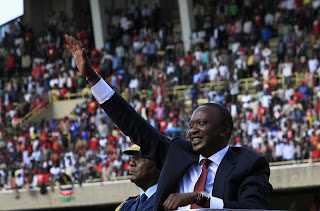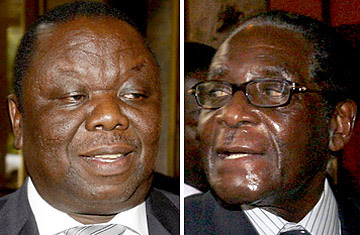Uhuru Kenyatta Cant Implement Land Reforms
 |
| President Kenyatta |
Due to public demand, Felix Kilonzo will for the first time break the silence over the TJRC report that was released by the commission to unmask the historical injustices that has affected the country since 1963. Although my silence adversely comes about due to the report’s sensitivity and its tall orders and revisiting what I call the land reforms which I term as a mere joke of our time.
The report in paragraph 199 says “During Kenyatta’s administration at independence and for several years thereafter, illegal dealings in land which left many individuals, families and communities landless and land-scarce took many forms.”
The intro to the land alienation that existed after the independence that my grandparents fought for indiscriminately was confirmed that the 90% of Kenya is managed by 5% of Kenyans and not through transparent forms but through ill gotten wealth and abuse of office.
The report says, “They [Kenyatta administration] included outright land grabbing, preferential treatment of certain communities, especially the Kikuyu, in land allocations and settlement, establishment of settlement schemes selectively for the benefit of members of certain communities, while other deserving individuals and families from other communities remained unattended, and illegal alienation of land from what was designated as public land for public purposes.”
During the Presidential Debate, Uhuru Kenyatta was reluctant to attend the second leg of the debate simply because it was to touch on Land reforms and historical injustices that happened after the independence when his father was the new boss. Though the president argued that his family acquired land through willing buyer, willing seller, he evaded the 'who' in the statement.
I find the report so true as I am still not convinced on the willing buyer willing seller scenario and therefore I wish an independent regime was supposed to implement the TJRC report other than the Jubilee administration who are adversely mentioned in the report and therefore very little is expected from them.
“The early years of Kenya’s administration ushered in Kenya, the beginning of mass land grabbing and irregular allocations of public land and other resources, which, in time, became a widespread and almost endless phenomenon throughout the country. Throughout the years of his administration, both land grabbing and irregular land allocations were perpetrated by and for the benefit of the President himself, members of his immediate family, his relatives and friends and officials in his administration, including political leaders from other tribes, with wanton impunity.
“Existing literature indicates that between 1964 and 1966, one-sixth of European settlers’ lands that were intended for settlement of landless and land-scarce Africans were cheaply sold to the then President Kenyatta and his wife Ngina, his children, Daniel Moi who succeeded him as president, other political leaders at the time including Mbiyu Koinange, Ronald Ngala, Oginga Odinga, through the Luo Thrift and Trading Company, Gikonyo Kiano, J.M. Kariuki, Masinde Muliro and Paul Ngei.173
When Mombasa Republican Council says Pwani si Kenya, they have a point. The point is their land were grabbed by Arabs and after Kenya got independence it was yet again grabbed by the black colonizer if I may call him.
“Kenyatta himself appears to have benefited immensely from irregular allocations of land that should have benefited those who lost land to Arab and British colonizers. By 1965, Kenyatta is reported to have been using his position as president to buy numerous settler farms in the White Highlands and also excising and allocating to himself and family government forest in Kiambu. President Kenyatta’s direct engagement in irregular land allocations compromised his position to prevent or remedy similar cases of land grabbing by his close associates.
I am certain that Cabinet secretary Charity Ngilu will do nothing and if you dispute my take, remind me in 5 years on what she will do. We can’t have 50% of Kenya owned by 10% of people who got land irregularly! Actually that doesn’t apply in real democratic world and its now time to see whether we can ‘Believe in the Kusema na Kutenda’ regime.
“In October 1973, Martin Shikuku, the then Butere MP, warned that if the Kikuyu did not share the fruits of Uhuru with others, they would eventually be “eaten by the other 41 tribes like a satisfied hyena was eaten up by hungry hyenas.”
And surely I conclude that we can not trust the Jubilee government with the implementation of the Land Reforms and therefore wish Kenyans had voted a clean person to head the executive other than the son of Kenyatta.
As usual Felix Kilonzo welcomes interaction via Twitter [@starkolix] or through #felixblog and we would talk there… what’s you take on the land reforms as mentioned by the TJRC report?

land reforms are contentious issue in kenya
ReplyDelete